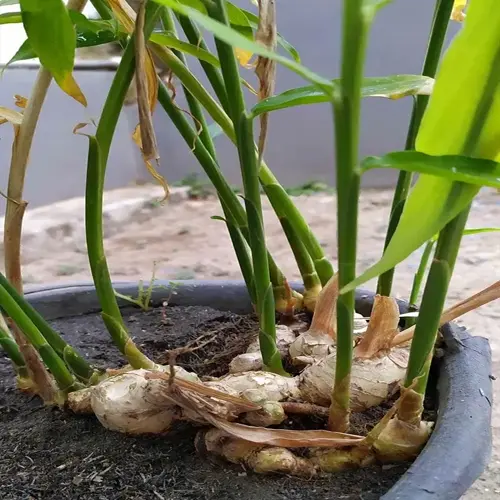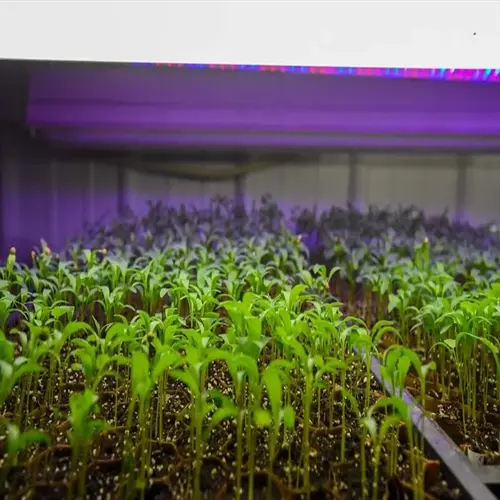Why does container mint sometimes become leggy?

Written by
Kiana Okafor
Reviewed by
Prof. Martin Thorne, Ph.D.Leggy mint growth can be a challenge for container gardeners who want their plants bushy. If your mint has long stems with few leaves, it probably isn't happy. Plants will stretch when they look for a better light source. Lack of sunlight, is the main problem, but there are other causes too.
Light Optimization
- Provide minimum six hours direct sunlight daily
- Rotate pots weekly for uniform light distribution
- Supplement with grow lights during low-light seasons
Pruning Techniques
- Pinch stem tips weekly above leaf nodes
- Remove flower buds immediately upon formation
- Cut back elongated stems by one-third monthly
Nutrient Management
- Avoid high-nitrogen fertilizers promoting rapid growth
- Apply balanced fertilizer every 6-8 weeks
- Prevent nutrient deficiencies causing weak stems
Weekly tip pinching offsets vertical growth well. Use your fingers to remove the shoot from the top of the plant. This action redirects energy to dormant buds (the plant's eyes) below, creating bushier, broader plants. Consistent attention to your plants will inhibit elongation before it becomes excessive.
Regularly rotate your containers to give all sides exposure to the light source. If the mint is growing toward the strongest light source, it becomes uneven. By rotating the containers a quarter turn each week, you will evenly distribute the light, encouraging all sides to grow uniformly, and avoiding one-sided stretching.
Address nutrient imbalances causing weak growth. Excessive nitrogen promotes rapid, yet fragile, stem elongation. Use balanced organic fertilizers sparingly. Soil testing identifies deficiencies requiring correction.
Crowded roots contribute to top-growth problems. Annual repotting prevents root binding that stresses plants. Choose containers one size larger each spring. Healthy roots support compact, vigorous foliage.
Correct leggy growth through systematic rejuvenation. Cut plants back by half during periods of active growth. Maintain proper light and nutrients afterward. New growth emerges bushier within weeks.
Read the full article: How to Grow Mint in Pots: A Complete Guide

